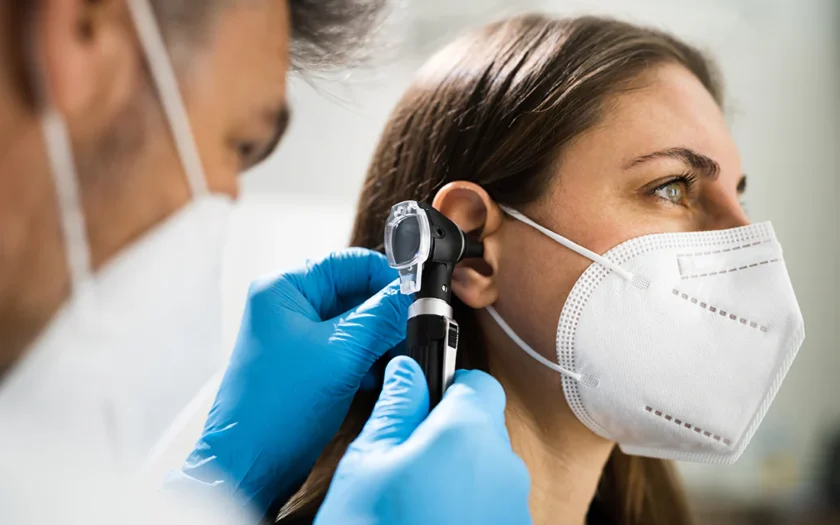Fluid or discharge from the ear, also known as otorrhoea, refers to any substance draining from the ear canal. This fluid might be ear wax, a natural substance composed of oils and solid materials that helps protect the ear by trapping dust and bacteria. However, otorrhoea can also indicate an underlying issue such as an ear infection, a perforated eardrum, or fluid buildup from conditions like otitis media. If the discharge is persistent, accompanied by pain, hearing loss, or other symptoms, it’s important to consult a healthcare professional for a proper diagnosis and treatment.
Understanding Ear Fluid: Key Symptoms and What They Mean
Symptoms associated with ear fluid or discharge can vary depending on the underlying cause. Common symptoms include pain, itching, loss of hearing, or ringing in the ear (tinnitus). You might also experience general discomfort, dizziness, or fever. The discharge itself can be made up of various substances, such as ear wax, blood, or pus. If you notice a foul smell, persistent symptoms, or significant hearing loss, it’s important to consult a healthcare professional to determine the cause and receive appropriate treatment.
Understanding the Causes of Ear Discharge
Fluid draining from the ear can be caused by various conditions, most commonly ear infections.
A middle ear infection, or otitis media, leads to a build-up of fluid behind the eardrum, often due to an infection. This condition is particularly prevalent in children but can affect individuals of any age. In severe cases, the increased pressure can cause the eardrum to rupture, resulting in thick yellow fluid draining from the ear. If the eardrum does not heal properly, fluid may continue to drain, leading to chronic suppurative otitis media, which is characterized by persistent discharge of white, yellow, or green fluid without significant pain.
An outer ear infection, known as otitis externa or swimmer’s ear, occurs when the skin inside the ear canal becomes swollen and infected, leading to the accumulation of discharge that can drain from the ear.
More serious infections, such as mastoiditis (an infection of the bone behind the ear) or malignant otitis externa (an infection affecting the ear canal and surrounding areas of the skull), can also cause fluid discharge.
Other causes include:
- eardrum Damage. A tear in the eardrum from inserting objects like cotton swabs too deeply or exposure to rapid pressure changes can result in fluid leaking through the tear;
- foreign Objects. Children, in particular, might insert small objects into their ears, leading to fluid mixed with blood or pus leaking out;
- cholesteatoma. This abnormal growth of skin cells in the middle ear can lead to smelly, fluid-filled discharge;
- serious Head Injury. A significant head injury may cause cerebrospinal fluid from the brain to leak out of the ear, which can appear clear or blood-stained;
- eczema of the Ear. This condition can cause a clear discharge due to inflammation and irritation.
Each of these conditions requires appropriate medical evaluation and treatment to address the underlying cause and prevent complications.
Understanding the causes of ear discharge is crucial for identifying the underlying issue and seeking appropriate treatment. While ear infections are common culprits, other factors such as ear drum damage, foreign objects, and serious conditions like cholesteatoma or head injuries can also lead to fluid drainage. If you notice persistent or unusual ear discharge, consulting a healthcare professional is essential for accurate diagnosis and effective management.
When to Seek Medical Help for Ear Discharge
See your doctor if you notice any fluid leaking from your ear, as this could indicate an underlying issue. In the meantime, keep your ear dry and avoid swimming, bathing, or inserting anything into the ear canal until you’ve been examined.
Seek immediate medical attention if you experience any of the following symptoms along with ear discharge:
- severe swelling, redness, or pain in the ear;
- fever or chills;
- dizziness, balance issues, or vision problems;
- hearing loss or a noticeable decrease in hearing ability4
- recent injury to the ear or head;
- existing conditions like diabetes or a compromised immune system.
Prompt evaluation is essential to diagnose the cause of the discharge and prevent potential complications.
If you notice any fluid leaking from your ear or experience symptoms such as swelling, pain, fever, dizziness, or hearing loss, it’s important to seek medical attention promptly. Timely evaluation can help identify the cause and ensure appropriate treatment, preventing potential complications. Always prioritize professional advice to address ear health concerns effectively.
Ear Discharge Diagnosis: Key Assessment Methods
To diagnose the cause of ear fluid, your doctor will typically use an instrument called an otoscope to examine the inside of your ear. This visual inspection often provides enough information to identify the issue. In some cases, further testing may be required. This could include a hearing test to assess any impact on your hearing, or imaging studies such as a CT scan or MRI to get a detailed view of the ear structures and surrounding areas. Additional tests might be needed if there’s a concern about underlying conditions or complications.
Managing Ear Discharge: Treatment Options and Remedies
Managing ear discharge requires identifying the root cause to determine the most effective treatment. Depending on the underlying issue, treatment options can range from simple at-home care to more advanced medical interventions. Understanding these remedies can help alleviate symptoms and address the problem effectively.
Treatment for fluid in the ear varies based on the underlying cause:
- general Care. Keeping the ear dry is essential, so avoid swimming and bathing until the issue is resolved. Over-the-counter pain relievers like paracetamol or ibuprofen can help manage discomfort;
- middle Ear Infections (Otitis Media). These infections often resolve on their own within a few days. However, if symptoms persist or are severe, antibiotics may be necessary. Your doctor may recommend a follow-up if the infection does not improve;
- chronic Suppurative Otitis Media. This condition, characterized by persistent fluid and infection, typically requires antibiotic ear drops. Regular follow-up is important to monitor healing;
- outer Ear Infections (Swimmer’s Ear or Otitis Externa). Treatment often includes antibiotic or antifungal ear drops to address the infection. Keeping the ear dry is crucial during recovery;
- eardrum Injuries. Most minor eardrum tears heal on their own. However, if there’s a risk of infection, antibiotics may be prescribed. Avoid inserting objects into the ear or exposing it to water during healing;
- specialist Care. If a foreign body is lodged in the ear, or if conditions like cholesteatoma are present, you may need to see an ear, nose, and throat (ENT) specialist for removal or surgery;
- advanced Imaging. In some cases, such as persistent symptoms or unusual discharge, your doctor might recommend a CT scan or MRI to better understand the issue.
Seeking prompt medical attention ensures the appropriate treatment and helps prevent complications.
Managing ear discharge effectively depends on accurately diagnosing the underlying cause. Treatment may involve keeping the ear dry, using prescribed medications, or seeking specialized care for more complex issues. Prompt attention and appropriate management can help alleviate symptoms and prevent complications.
Preventing Ear Discharge: Tips and Strategies
Preventing ear discharge involves proactive measures to protect ear health and minimize the risk of infections and other ear-related issues. By following a few simple strategies, you can significantly reduce the likelihood of fluid buildup and maintain overall ear hygiene.
Here are several strategies to help prevent conditions that can lead to fluid from the ear:
- maintain Good Hygiene. Practicing good hygiene, such as regular hand washing, and ensuring that children receive their routine vaccinations, can help reduce the risk of middle ear infections;
- avoid Inserting Objects. Refrain from inserting objects into the ear canal, including cotton buds or small items, and discourage children from placing toys or food in their ears;
- manage Nasal Congestion. Avoid flying or diving if you have a blocked or congested nose, as this can increase the risk of ear infections and pressure issues;
- dry Ears Properly. After swimming, bathing, or showering, make sure to thoroughly dry your ears. This helps prevent swimmer’s ear by reducing moisture in the ear canal, which can promote bacterial growth;
- use Ear Protection. When swimming in pools, consider using earplugs designed for water sports to keep the ears dry and protected from excess moisture;
- regular Ear Check-Ups. Schedule regular check-ups with a healthcare provider to monitor ear health and address any issues early on.
By adopting these preventive measures, you can greatly reduce the risk of ear infections and fluid buildup. Regular ear care and vigilant hygiene practices are key to maintaining healthy ears and avoiding common problems associated with ear discharge.
Potential Complications of Ear Fluid: What You Need to Know
The risk of complications from fluid in the ear largely depends on its underlying cause and how effectively it is managed. Complications can arise from untreated infections, persistent fluid, or injuries, potentially leading to hearing loss, chronic infections, or more serious conditions like mastoiditis. If you are experiencing fluid from the ear or have concerns about potential complications, it’s important to consult with your doctor for an accurate diagnosis and appropriate treatment.



